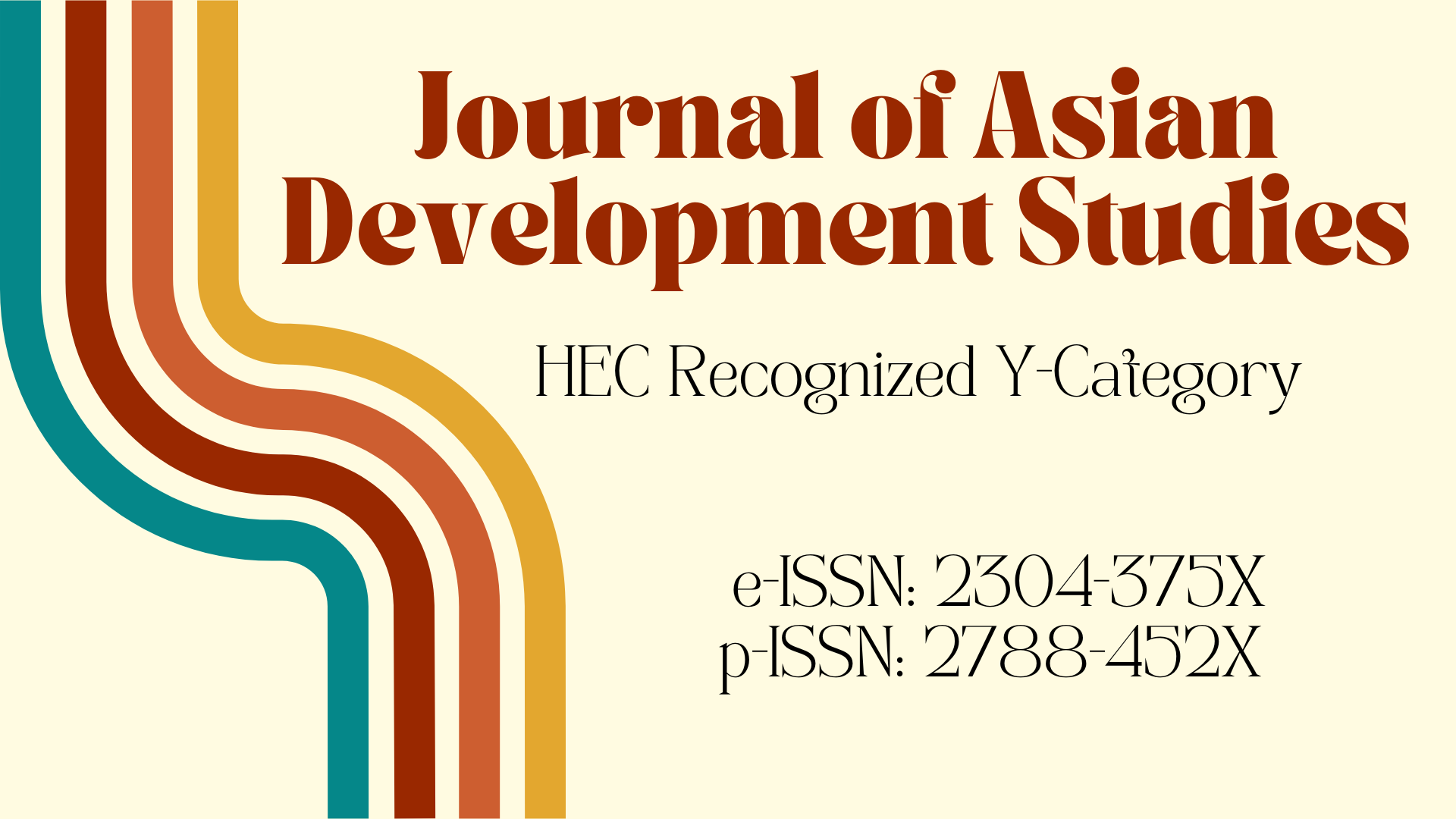Socio-Economic Consequences of Horizontal Gender Inequalities in Education and Health: Incidence from Pakistan
DOI:
https://doi.org/10.62345/jads.2025.14.1.22Keywords:
Horizontal Multi-Dimensional Inequality, Gender Inequality Index (GII), Virtuous CycleAbstract
Women make up almost half of the population of Pakistan and contribute significantly to socio-economic development. However, women have been suffering from horizontal and vertical multi-dimensional inequality of opportunities in all spheres of life, especially in education and health. This occurrence of horizontal inequality poses serious socio-economic consequences, leading to poverty, inequality, low productivity, ill health, low life expectancy, and other interrelated problems. In the Gender Inequality Index (GII), the ranking of Pakistan is 135, compared with 127 for Bangladesh and 108 for India. Maternal mortality in Pakistan is highest among all the selected countries and regions. It is 154 per 100,000 births. 32% of the children in Pakistan are out of school. Out-of-school female children constitute 37% of the population, while out-of-school male children are 27%. Education and health facilities for women play a pivotal role in enhancing their productivity and socio-economic development. Mothers with no education have a high infant mortality of 69 per thousand. At the same time, it is reduced to only 32 per thousand for mothers who have matriculation and are above the level of education. The study aims to analyze the socio-economic consequences of horizontal multi-dimensional gender inequalities in education and health faced by women in Pakistan.
Downloads
Downloads
Published
Issue
Section
License

This work is licensed under a Creative Commons Attribution 4.0 International License.
License Terms
All articles published by Centre for Research on Poverty and Attitude are made immediately available worldwide under an open access license. This means:
- everyone has free and unlimited access to the full-text of all articles published in Centre for Research on Poverty and Attitude's journals;
- everyone is free to re-use the published material if proper accreditation/citation of the original publication is given.




